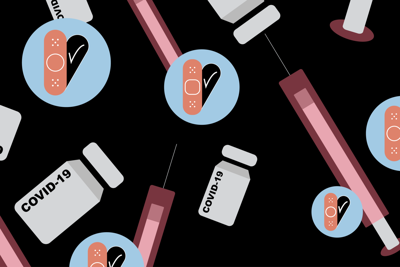When Dr. Derrick Lemons, an associate religion professor at the University of Georgia, received the COVID-19 vaccine, he desired the same freedom for students this summer. This motivated him to start the Vaccine Ambassadors program to encourage the UGA community to return to normalcy by getting the COVID-19 vaccine. He reviewed hundreds of applications in the search for 25 student leaders passionate about combating vaccine hesitancy and inspiring fellow peers to attain herd immunity.
“The vaccine ambassadors program creates a great learning opportunity for the ambassadors,” Lemons said. “We can learn how to have difficult conversations with friends, how to navigate the politics of the COVID-19 vaccine, how to advocate for something we believe in, how to organize a movement for positive change and how to communicate the science supporting the vaccine.”
Lemons said he did not expect such an enthusiastic response to the request for student ambassadors. After sorting through countless applications, Lemons chose athletes, artists, Greek life leaders, nonprofit founders and student government advocates to complete training and receive a stipend of $1,500 from the Interfaith Youth Core.
Recently, the UGA president’s office awarded the group $10,000 to carry on their efforts for the upcoming semester, Lemons said.
Each ambassador represents a corner of the student body, and each works diligently on outreach towards these communities. Mary Evelyn Brock, the current Panhellenic president, wanted to have Greek representation.
“I wanted to be an ambassador to show people that the vaccine is not something to be afraid of but more so excited about,” Brock said. “Right now, I am currently collecting data on vaccination numbers within the Panhellenic community. I am also working on graphics and videos to engage our community.”
UGA football’s wide receiver Kearis Jackson said he applied because he knew he could use his voice and platform to make a difference.
“Getting the vaccination myself was life-changing, and I want to be that change for others. Currently, I am trying to encourage my whole football team and others around me to get vaccinated,” Jackson said.
The 2020-2021 Student Government Association President Asim Ahmed said his role is to help “people understand the vaccine at a molecular level, why it’s important to be vaccinated and the implications of not being vaccinated.”
“I think it’s very important to recognize that people not receiving the vaccine is not always due to delirious beliefs that individuals hold,” Ahmed said. “I also think that it’s important that we truly distinguish the difference between vaccine hesitancy and vaccine inaccessibility. Not everybody who hasn’t been vaccinated is vaccine-hesitant, as there are huge disparities in access to vaccines that disproportionately impact marginalized groups. Recognizing this is important if we want to get more people vaccinated.”
COVID-19 hospitalization rates for Black Americans are 2.9 times higher than white Americans, according to recent information from the Centers for Disease Control and Prevention, and mortality rates are 2.0 times higher. A legacy of unethical medical procedures performed on the Black community has resulted in significant parts of this demographic developing a mistrust of the medical profession. According to a Pew Research Center poll released in December 2020, only 42% of Black Americans said they would definitely or probably get a COVID-19 vaccine.
Lemons also said that some of the struggles the program has faced is that “basic public health recommendations have been equated with political sides,” and a political perspective may cloud one’s judgement when it comes to basic questions about the safety and efficacy of the vaccine.
As of July 9, 44% of the total population of Georgia has received one dose of the vaccine, and 39% are fully vaccinated. In comparison, 38% of Athens-Clarke County has been fully vaccinated. With the new Delta variant, which is now the most common strain in the United States, health experts are bracing for another wave of cases in the country, particularly among the unvaccinated.
Lemons said he encourages anyone on the fence about the vaccine to follow the Vaccine Ambassadors on social media, where there are myth busting posts, introductions to the ambassadors and an abundance of information about the vaccine.
With the fall semester approaching rapidly, the ambassadors are going the extra mile to educate and empower the UGA community to get the vaccine and return to normalcy.


